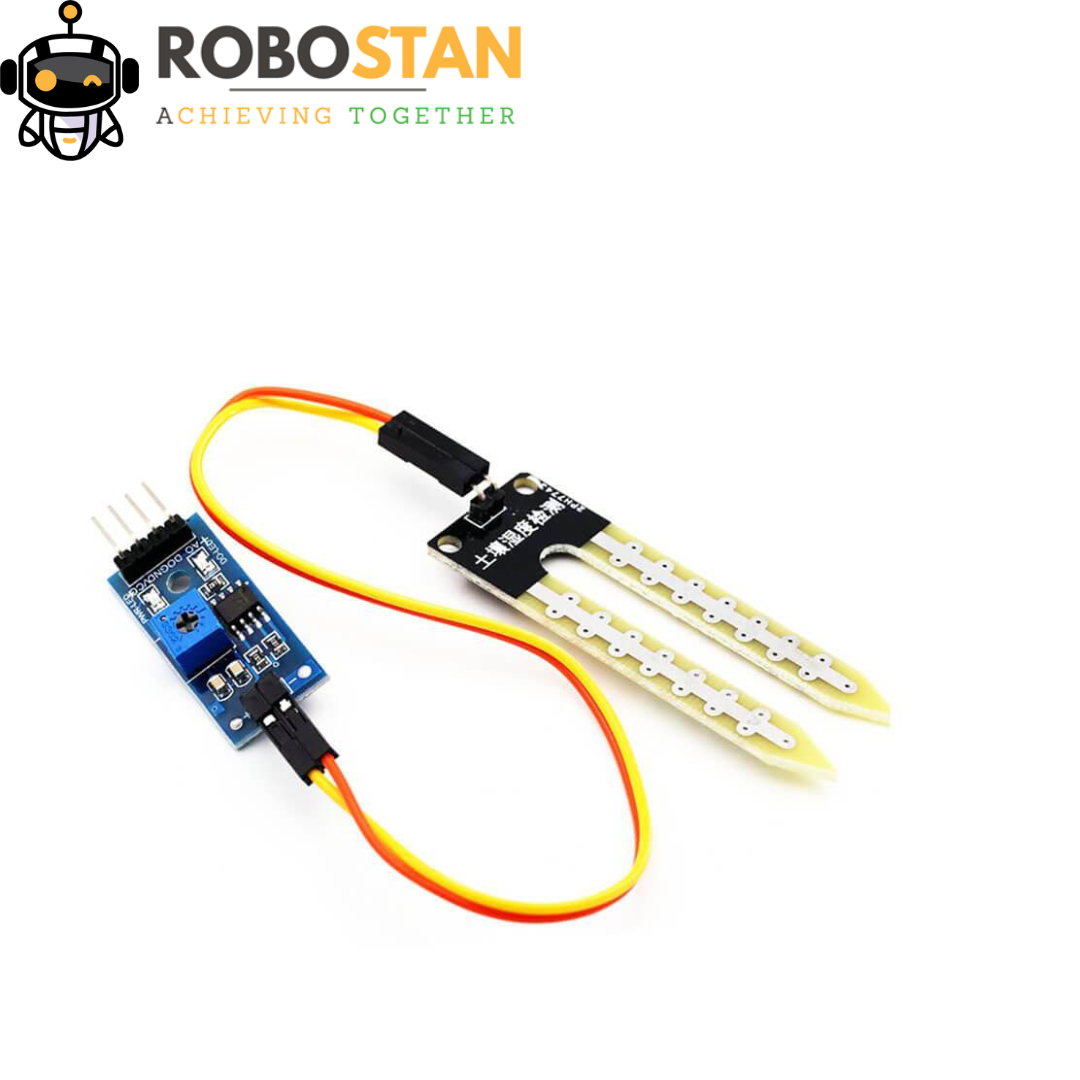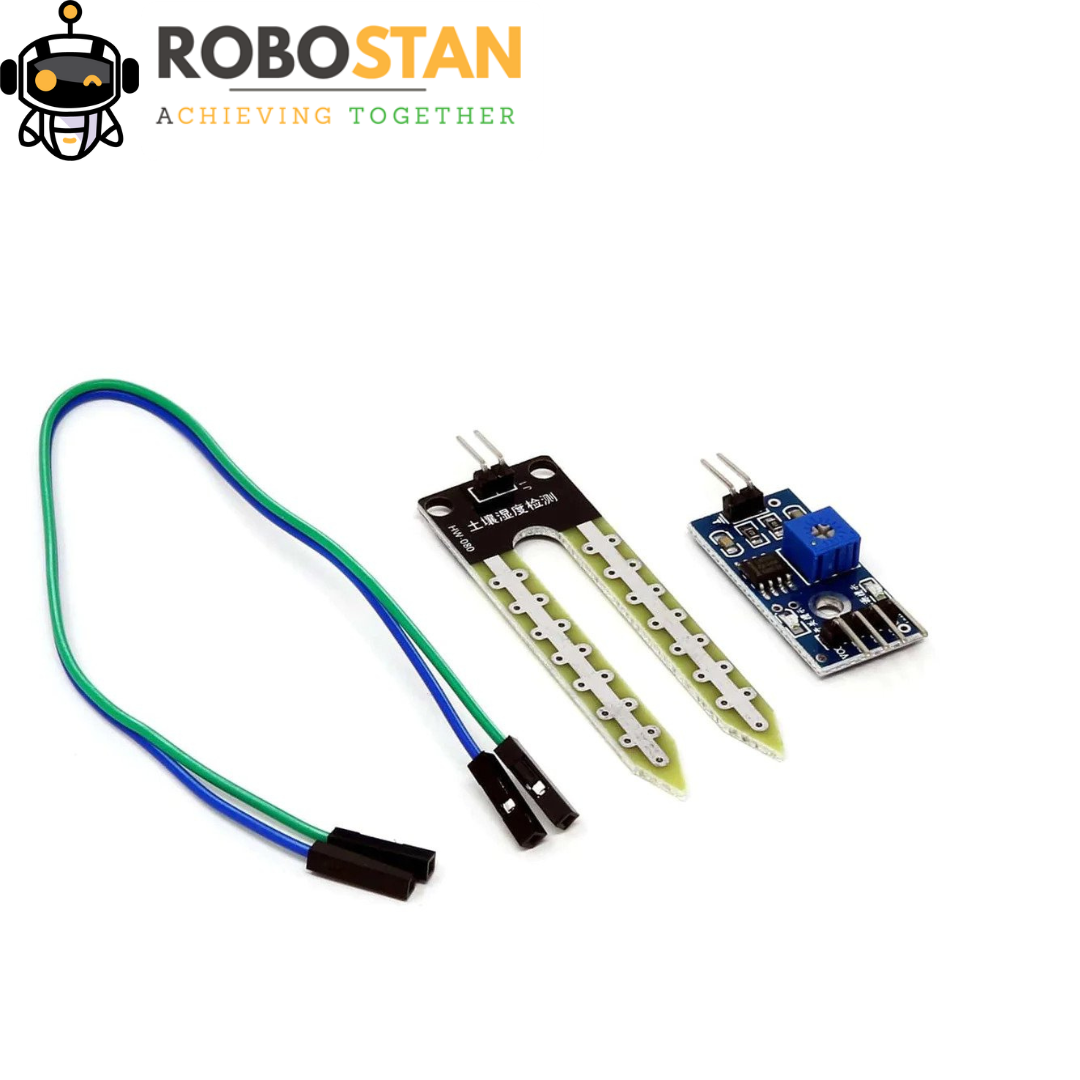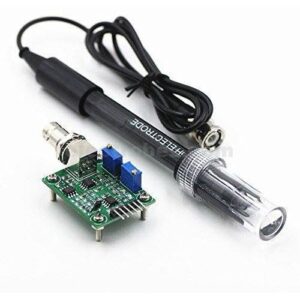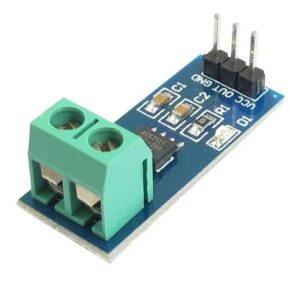Sale!
Compare
Buy Soil Moisture Sensor for Arduino | robostan.pk
Original price was: ₨200.₨150Current price is: ₨150.
Technical Specifications
| Specification | Details |
|---|---|
| Type | Soil Moisture Sensor |
| Operating Voltage | 3.3V to 5V DC |
| Output Type | Analog (Voltage Output) |
| Range | 0 to 100% (Soil Moisture Level) |
| Operating Temperature | -40°C to 85°C |
| Size | 60mm x 25mm |
| Material | Durable plastic and metal |
| Sensor Probe Length | 60mm |
| Response Time | Instantaneous |
| Waterproof | Yes |
Description
Soil Moisture Sensor For Arduino
The Soil Moisture Sensor for Arduino is a versatile and cost-effective solution for monitoring soil moisture levels in gardening and agriculture applications. This sensor is designed to work with Arduino boards, providing real-time data on the moisture content of soil. It is perfect for automated irrigation systems, ensuring that plants receive the right amount of water. With a simple analog output, the sensor is easy to integrate into your DIY projects, allowing you to build automated systems that save water and promote plant health.
You must be logged in to post a review.








Reviews
There are no reviews yet.